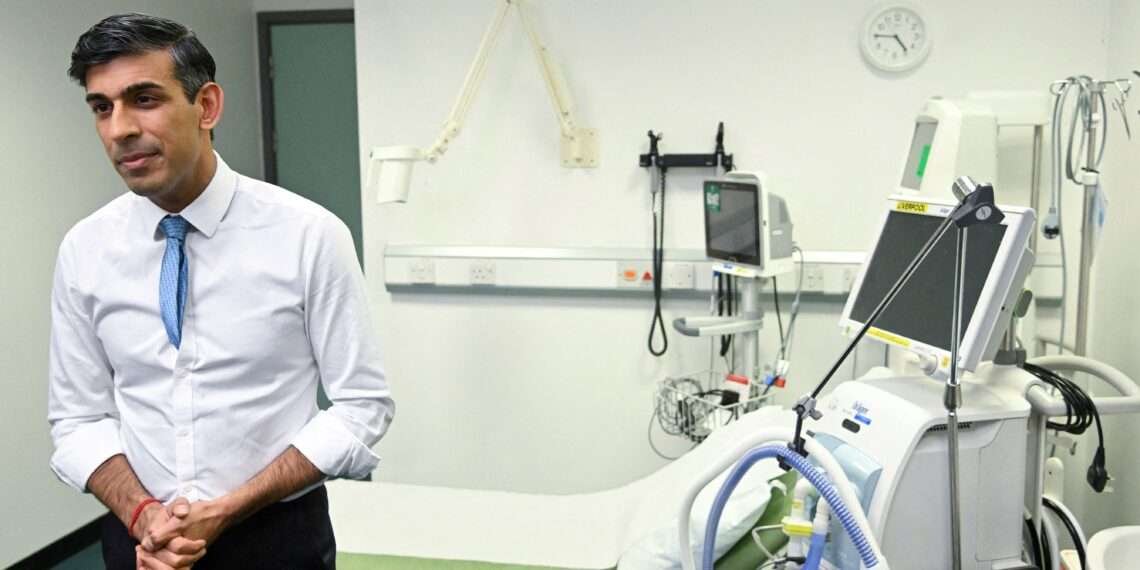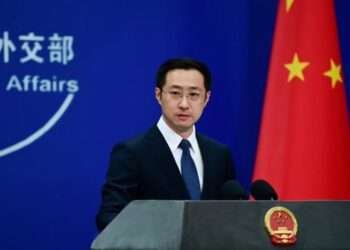According to Rishi Sunak, the NHS is about experiencing the “largest expansion in training and workforce” in its entire history. The Prime Minister disclosed that, the initiatives would lessen the “reliance on healthcare professionals with foreign training.”
Sunak’s announcement happens at a time when the NHS has been faced with a long waiting lists of clients, and junior doctors are planning a five-day strike in the middle of next month. The completed plans are anticipated to be released next week.
When asked how long it would take to see the effects of the changes, Mr. Sunak acknowledged that, it could take “five, ten, fifteen years for these things to come through,” but this does not imply that, it is not the correct thing to do.

Wes Streeting, the Shadow Health Minister claimed that, Labour’s plans to expand the NHS workforce had been stolen by the administration. “If the Conservatives had trained the staff that the NHS requires over the last 13 years, it would not be in the midst of the worst crisis in its history today,” Mr Streeting asserted.
“And they still have no plan to stop staff leaving today, end the strikes, or reform the NHS.” Nearly everyone agrees that, there has to be a major rise in the quantity of medical professionals enrolling in training programs.
However, the NHS’s objectives absolutely cannot be met by the UK’s existing medical and nursing education system. Currently, approximately half of all new doctors and nurses, entering the UK workforce have been trained abroad.
Although the number of employees has increased over the previous ten years, the NHS has less doctors and nurses per capita, than many of our European peers due to financial cuts.

The problem the government faces in boosting training spaces, is making sure there are adequate clinical placements for students to complete during their training. The strains on the NHS mean that, services are finding it harder and harder to provide students the time and assistance they need.
Moreover, to curb staffing deficits in the NHS in England, the proposed package of initiatives may include the introduction of apprentice doctor positions. Individuals who complete the five-year internships would become junior doctors, providing a viable alternative to the regular medical degree path.
Mr. Sunak claimed that, the measures would “mean people can have confidence that the doctors, nurses, and GPs that we all need will be there.” He stated that, the “long-term workforce plan” would allow the NHS to recruit physicians, nurses, and general practitioners “not just today, but for years into the future to provide the care that we all need.”

One of the Prime Minister’s five assurances, which were made public at the beginning of the year, was to decrease waiting periods in the NHS. In England, there were 7.4 million patients in line for consultant-led elective treatment as of the first half of this year, up from 7.2 million in January.
On the other hand, Mr. Sunak has unable to reach a salary agreement that would deter the junior doctors to strike. The British Medical Association union’s strike is the longest yet, lasting from July 13 to July 18, in dispute over salary. According to the Union, the 5% wage raise was rejected because it wasn’t “credible.”

Sunak also claimed to have had agreements with “over half a dozen NHS unions’ and to have the responsibility of “to make difficult decisions as prime minister.” “When it comes to public sector pay, I’m going to do what I think is affordable, what I think is responsible,” he said.
READ ALSO:Central African Republic And Mali Seriously Monitoring Russia-Wagner Impasse























